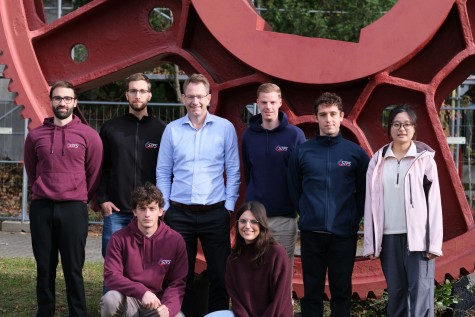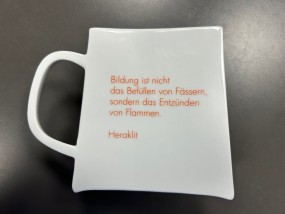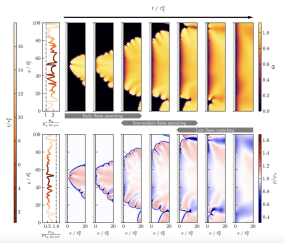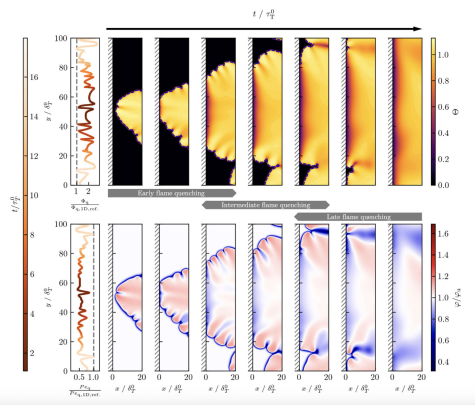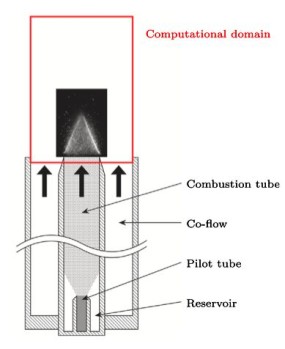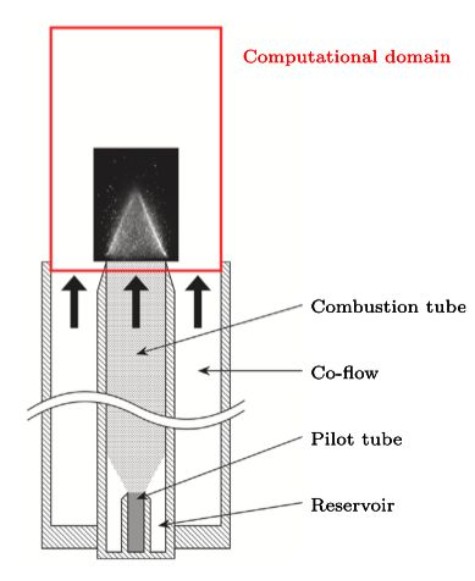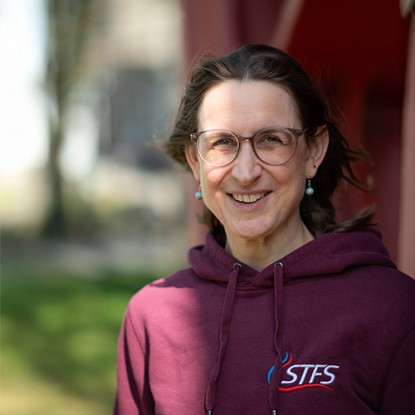-
![]()
![]()
STFS grows — diversity attracts diversity and sustainability of partnerships
2025/11/05
New colleagues at STFS
Over the coming months, several PhD candidates (Philipp Koob, Bich-Diep Nguyen, Driss Kaddar, Tim Jeremy Patrick Karpowski, Jannis Reusch) will complete their theses, while new researchers have joined Simulation of Reactive Thermo-Fluid Systems (STFS), TU Darmstadt. What makes me especially happy is that each of them joined through long-standing, trusted collaborations — each following a unique path.
-
![]()
![]()
New research opportunity @ STFS — Postdoc in DNS and HPC (starting 2026)
2025/11/04
Postdoc position at STFS
Topic: Hot-gas / cooling-air interaction in non-reactive flows over film-cooled turbine nozzle guide vanes (NGVs). See attached images.
-
![]()
![]()
Inspiring the Next Generation of Engineers — Inside the Fascination of Jet Engines
2025/11/03
Excursion to industrial partner Rolls-Royce
As part of our University Technology Centre (UTC) partnership with Rolls-Royce, we recently took 15 Bachelor students on a two-day excursion to Rolls-Royce Dahlewitz — a truly unique opportunity to witness jet-engine assembly and testing up close.
-
![]()
![]()
Conference on Numerical Combustion — Coming Home
2025/10/24
International Conference on Numerical Combustion (ICNC)
The International Conference on Numerical Combustion (ICNC) is one of the true highlights in my calendar every two years. The program is focused, the discussions stimulating and purposeful — three days that feel like a big family reunion of the combustion community.
-
![]()
![]()
The funny side of the Combustion Symposium deadline
2025/10/21
-
![]()
![]()
Strategic development and onboarding of researchers – inseparable
2025/10/21
STFS and RSM Team
It is a long-standing tradition that our institute Simulation of Reactive Thermo-Fluid Systems (STFS), TU Darmstadt, together with Reaktive Strömungen und Messtechnik (RSM), TU Darmstadt, led by Andreas Dreizler, holds a one-week retreat in the Darmstädter Haus in Kleinwalsertal.
-
![]()
![]()
Kindling Minds, Not Just Filling Vessels – how teaching and the energy transition are coupled
2025/09/30
Lecture re-designed
Right before the new semester kicks off — with our completely redesigned course Chemically Reactive Flows – Theory and Practice with Python [1] — a quote on my coffee mug caught my attention (see pictures [2]):
-
![]()
![]()
ERC Starting Grant for Arne Scholtissek – fantastic news for combustion research
2025/09/26
A milestone that makes me truly proud as a mentor
A major milestone on this path is an ERC Starting Grant. Congratulations to Arne Scholtissek for being awarded the ERC Starting Grant “Protocol for data-driven Manifold generation, validation, and utilization in high-fidelity combustion simulations – ProtoMan”.
-
![]()
![]()
Why fundamental insights are crucial for turbulent hydrogen combustion
2025/09/25
(or why thinking inside a box can be key to getting out of it)
It was a pleasure to welcome Thomas Howarth from the Institute for Combustion Technology, RWTH Aachen University, to Darmstadt. His talk Lean Premixed Hydrogen Flames: From Laminar Foundations to Turbulent Jets sparked lively discussions.
-
![]()
![]()
DFG Transfer Projects – combining the best of both worlds
2025/09/15
(What are Transfer Projects? Why are they important? What’s our topic?)
German Research Foundation has approved my Transfer Project “Modelling of Flow–Flame–Cooling-Air Interaction under Technically Relevant Conditions”. The project is now part of the Collaborative Research Centre / Transregio 150 “Turbulent, Chemically Reacting Multiphase Flows Near Walls” (speaker: Andreas Dreizler) of Technische Universität Darmstadt and Karlsruher Institut für Technologie (KIT).
-
![]()
![]()
Visit from Prof. Bassam Dally
2025/09/04
Visit from Prof. Bassam Dally
-
![]()
![]()
When industry recognizes the power of fundamental research and collaboration
2025/09/01
Innovation Award Prize
We are delighted that our paper “ Comprehensive Modeling of the Cause-And-Effect Chain in Aero-Engine Combustor Simulations: From Primary Breakup to Soot Formation ” has been awarded First Prize in the Publications category at the Rolls-Royce Deutschland Innovation Awards 2025.
-
![]()
![]()
What happens when a hydrogen flame interacts with a wall?
2025/07/09
New publication
Fundamental Research with Practical Impact – Supported by the DFG Priority Programme SPP 2419 HyCAM
-
![]()
![]()
Meme of the week – only for CFD people
2025/07/09
Off-topic
Meme of the week – only for CFD people ….
-
![]()
![]()
Insights into iron dust flames – a path forward to decarbonize industry
2025/07/09
New publication
Analyzing Iron Dust Bunsen Flames using Numerical Simulations by Thijs Hazenberg, Daniel Braig, Michael Fedoryk, Johannes Mich, Fabian Hagen, Stefan Harth, Björn Stelzner, Arne Scholtissek, Dimosthenis Trimis & myself.
News
Current news from the STFS
Here, you can find the latest news about STFS, including events, research projects, publications, and staff updates.



